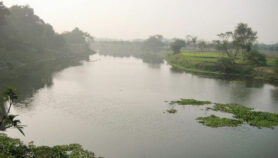South Asia’s vibrant tapestry is woven with the lifeblood of its rivers—the Brahmaputra, Indus, and Ganges—nourishing nearly a billion souls and fostering economic vitality across the region. However, the specter of climate change looms large, threatening to disrupt the delicate balance upon which these river basins depend. In a groundbreaking analysis, researchers underscore the urgent need for enhanced collaboration to safeguard the water security of South Asia’s communities and ecosystems. This article delves into the key findings of the reports released by the International Centre for Integrated Mountain Development and the Australian Water Partnership, shedding light on the critical importance of joint action in mitigating the impacts of climate change on the region’s vital water resources.
Challenges and Opportunities: The Brahmaputra, Indus, and Ganges rivers serve as lifelines for the people of South Asia, sustaining agriculture, industry, and livelihoods. However, burgeoning populations and escalating temperatures pose formidable challenges to the sustainability of these vital waterways. The reports underscore the pressing need for collaborative strategies to address the lack of planning, research, and data sharing, which exacerbate existing vulnerabilities. By fostering cooperation among riparian countries, the region can chart a course towards sustainable energy, water security, and disaster resilience.
Navigating the Path Forward: The analysis advocates for the adoption of integrated river basin management (IRBM) approaches, which offer a holistic framework for addressing the complex interplay of social, economic, and environmental factors shaping water governance. Central to this approach is the promotion of data sharing and open dialogue, empowering local stakeholders and vulnerable communities to actively participate in decision-making processes. Drawing inspiration from successful models such as the Mekong basin, the region can harness the power of collaboration to confront shared challenges and forge a more resilient future.
The Indus basin, spanning four countries—Afghanistan, China, India, and Pakistan—faces mounting pressures from changing precipitation patterns and increased water variability. With water demand projected to surge by 50% by 2047, urgent action is needed to enhance storage capacity and adapt to climate-induced stresses. Similarly, the Ganges basin, home to millions of people in India, Nepal, and Bangladesh, grapples with the dual threats of floods and droughts exacerbated by climate change. Concerted efforts are required to bolster disaster preparedness and strengthen adaptive capacity among vulnerable communities.
In the Brahmaputra basin, which supports diverse ecosystems and livelihoods across Bangladesh, India, China, and Bhutan, escalating demands for food, energy, and water underscore the need for sustainable management practices. By prioritizing biodiversity conservation and equitable resource allocation, the region can mitigate the risks posed by burgeoning development pressures.
As tensions over water resources escalate globally, South Asia stands at a crossroads, poised to chart a new course towards collaborative governance and shared prosperity. The UNESCO report’s call for enhanced international cooperation underscores the imperative of transboundary agreements in preserving peace and stability. By embracing the principles of inclusivity, transparency, and mutual respect, South Asia can unlock the transformative potential of water cooperation, safeguarding the future for generations to come.
In confronting the multifaceted challenges posed by climate change, South Asia must embrace a paradigm shift towards collective action and shared responsibility. By harnessing the power of collaboration, the region can transcend borders and forge resilient solutions to its most pressing water challenges. As the Brahmaputra, Indus, and Ganges rivers continue to weave their timeless tapestry, let us heed the call for unity and cooperation, ensuring a future where water flows freely, sustaining life and prosperity for all.
